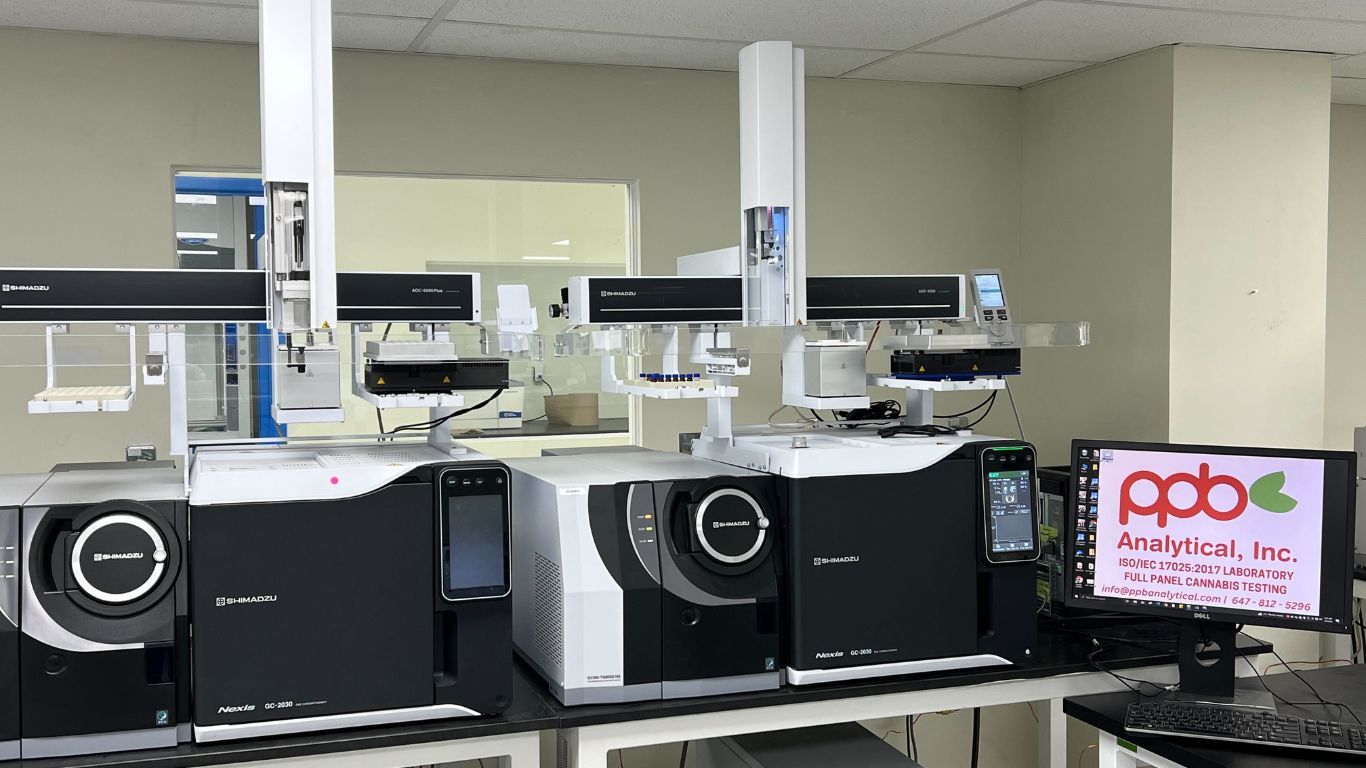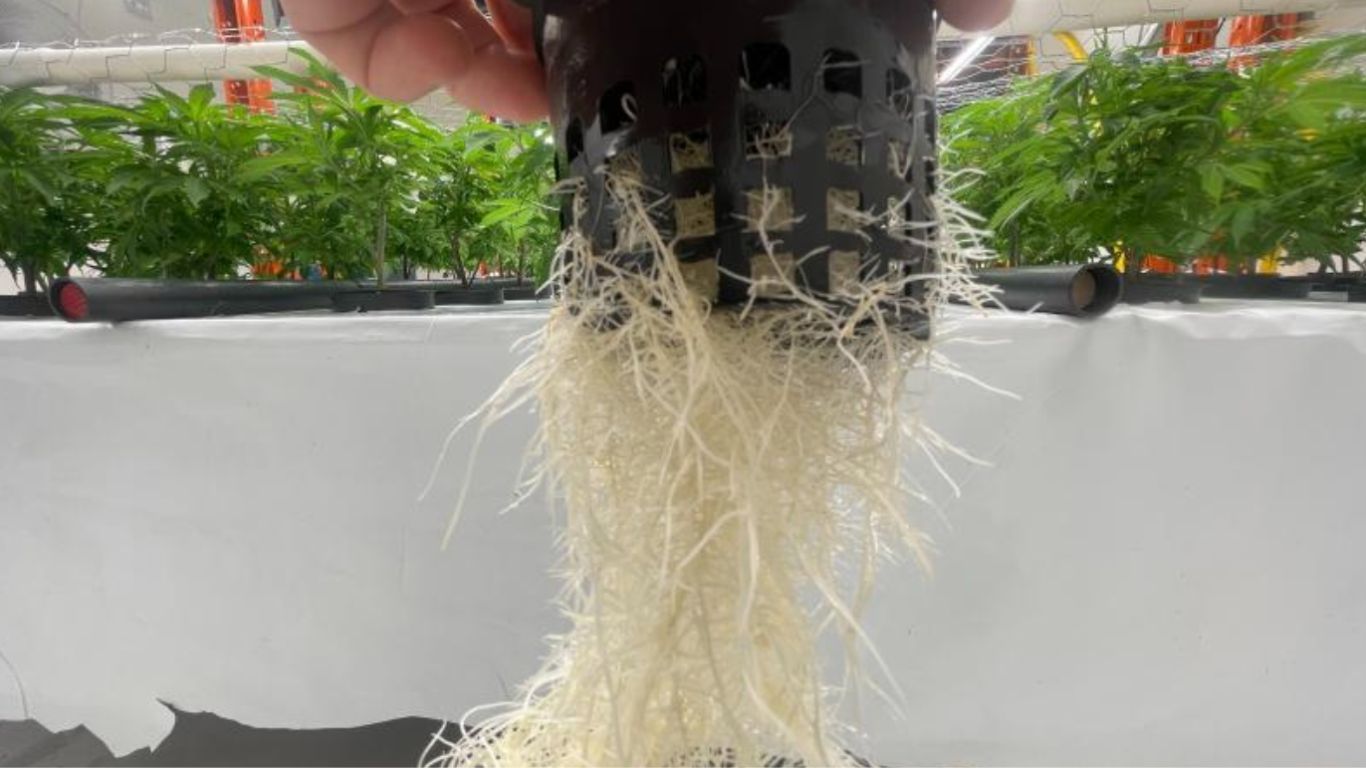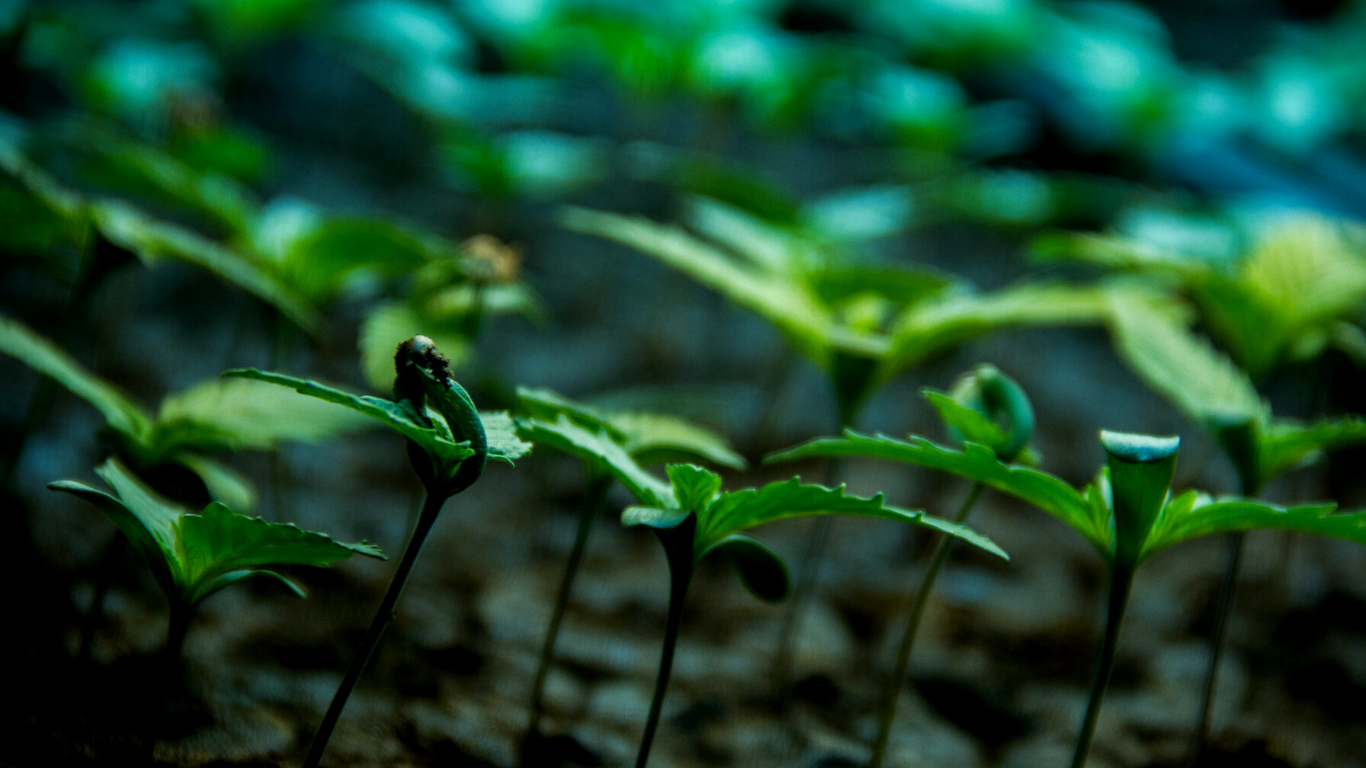
Logan Dunn of Dunn Cannabis in Abbotsford, BC just received a licence to cultivate cannabis on June 26th, but has been working towards this day for years now.
Dunn, age 40, a medical grower under the MMAR and protected under the Allard injunction since 2014, originally intended to apply for a commercial cultivation licence under the ACMPR before seeing the proposed micro regulations in mid 2018 and then finally applying in late 2018.
The process to get this point has taken a lot of time, he says, but it’s also given him time to prepare and learn from others already licensed, both their successes and failures.
Dunn says he was able to apply in October of 2018 when non-medical licensing opened because he was studying the proposed regulations as soon as they came out, quickly working on retrofitting an existing building he had shortly after. Even so, he says in some ways he thinks applying so early may have been in some ways a detriment.
“I think somebody with a micro facility can produce high quality cultivars at 500 or 600kg annually, and based on that I could see company sales around a few million annually, not counting operating expenses. So it’s certainly doable.”
“We all knew that micro cultivators were going to be allowed prior to licensing,” says Dunn, “so I was ready to apply pretty early when the portal opened. But I think there was a big rush in the beginning and some applications got lost or bogged down in the initial rush.”
One of the biggest challenges was the wait for security clearance, which he says was exacerbated by the RCMP or Health Canada misplacing his fingerprints, as well as working his way through an ITR notice (Intent to Refuse). But he says that through that some of those initial bottlenecks created by what he suspects was a big rush of early applicants, he’s seen things improve quite a bit, with many new licence holders now getting through in much less time.
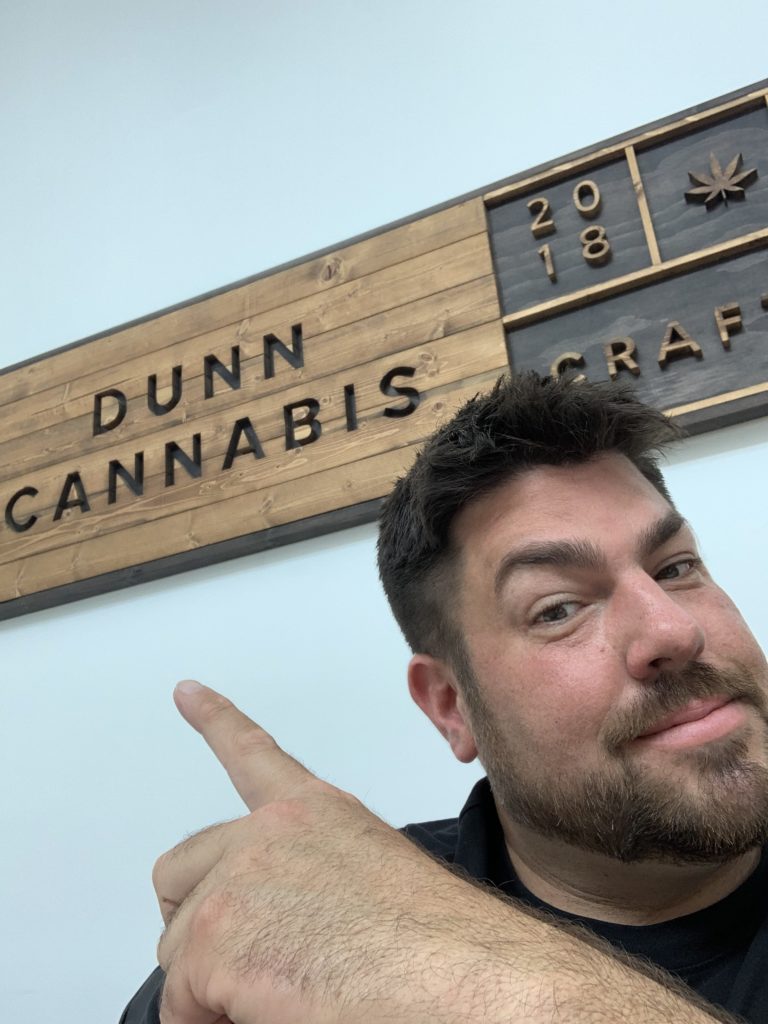
“I think it’s gotten a lot better over time, but I think in the beginning some things got pushed aside or were just a little bit scattered,” says Dunn. “After going to some of the speaking events Health Canada has put on in the last year or so, you can tell they have really changed how they are doing licensing and it seems to be moving people along a little quicker.”
“Any time you get an ITR, that ‘s a kick in the gut. And you think ‘could this prevent me from entering the system?’. Obviously the answer is yes and that was difficult waiting for an answer on that. It was tough. But I found that by just answering those requests and working through each step one at a time that you can still get there.”
“We’re not interested in meeting the bar, we’re here to exceed that in every possible way. Having been involved in the industry for some time now, it allows me a massive advantage against these excessive scale facilities.”
One of those changes he sees Health Canada making, is potentially allowing applicants to apply for a security clearance prior to applying for a cultivation or processing licence. Because it can be such a big, unknown risk and often a long wait time, he thinks this is key in helping people with a history in the illicit market feel confident in moving forward with transitioning into the legal industry and essentially putting their whole past history on the line.
“I think that change could be a very positive thing,” he says. “A lot of people invest everything they have into this and to hear a no would be just terrible. For legacy producers, the first thing they do when they enter the system is apply for a security clearance right away. Because if you’ve been operating in this space for a while, there could be some issues that come up.”
Now that he is finally licensed, though, he says he is very excited and confident about the future. He looks forward to his first crop, which will be sourced from some of the 74 different cultivars he was able to transition in with his licence.
Although the current market has been dominated by larger producers who at times have focussed more on quantity than quality, he thinks smaller growers like himself have a chance to not only raise the bar in terms of consumer expectations, but also to prove that small cannabis growers can be very viable.
“We’re one of the first (micros) in BC, we’re fresh out of the gate, and we’re a new business that is very unique within the existing market,” says Dunn. “We’re unique in that we’re production-attentive, and focussed on what experience consumers expect and what new consumers will feel confident in. So bringing that clarity as a legacy producer is a great opportunity to show how this can work.
“My company is really going different because we’re going to sacrifice larger yielding cultivars with genetics that we know are just going to dazzle the consumer,” he continues. “We’re not interested in meeting the bar, we’re here to exceed that in every possible way. Having been involved in the industry for some time now, it allows me a massive advantage against these excessive scale facilities.”
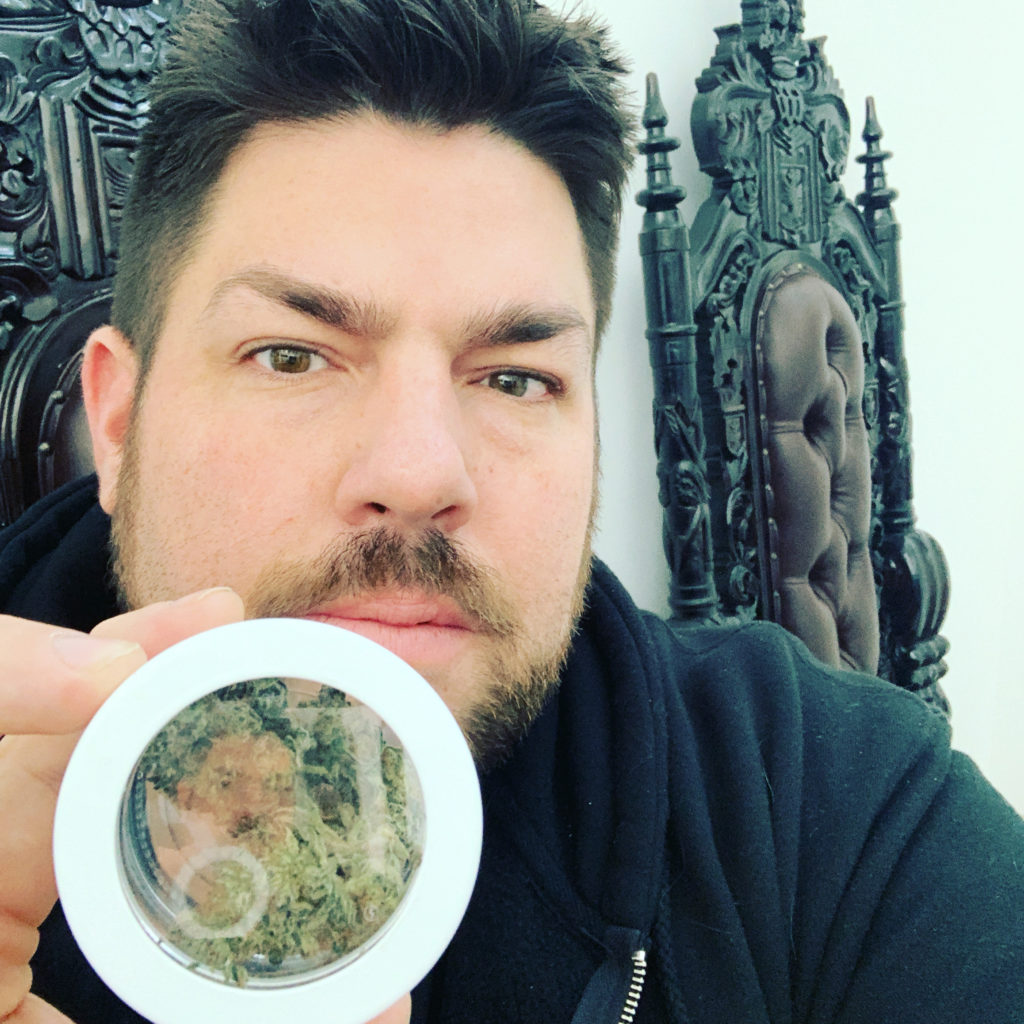
Although he says he sees prices on the wholesale market being relatively low right now, he believes smaller batch growers have a chance to quickly shift those factors once consumers have an opportunity to experience a more unique and quality product than they may currently be used to in the legal market.
We understand that the craft producers’ values have not matured in the market quite yet,” he explains. “So I know that selling at a lower price right now is what we’re going to see for the next little bit, but as we expand across Canada I really believe the focus will mature toward an experience that also encompasses aromas and flavours, something that you might not see in a large scale facility.
Another important piece to that puzzle, he says, is farmgate sales. He understands BC is looking at the model and while he knows it might be some time before it’s in place, he’s already taking steps to work towards that possibility.
“I think 200 square metres allows for a craft business or maybe even a family who wants to get involved in the industry, and can serve them well at that scale. I think it was designed to ensure more success over time and I think (micro) is a great starting point for anyone starting off in the industry.”
“When I built my facility, I designed it with a front entrance area that will allow us to operate in that way when it’s possible,” says Dunn. “I think (farmgate) will allow small scale producers to sell their products legitimately, and maybe even online and that will be a huge advantage to make this even more profitable for smaller players. Right now (current wholesale prices) will get us by, and down the road I think the market will be rich with its ability to sell more directly to the consumer and that will allow for more profit.”
Even with the current model and at current wholesale prices, though, he says he feels very confident the 200m2 allowed under the micro cultivation regulations are very viable for a small business.
“I think 200 square metres allows for a craft business or maybe even a family who wants to get involved in the industry, and can serve them well at that scale,” says Dunn. “I think it was designed to ensure more success over time and I think (micro) is a great starting point for anyone starting off in the industry.
“I think somebody with a micro facility can produce high quality cultivars at 500 or 600kg annually, and based on that I could see company sales around a few million annually, not counting operating expenses,” he continues. “So it’s certainly doable. And there’s a lot of room for error there, too.”
“Be patient. Reach out to people who have been approved, as I did at times, which helped. Reach out to me! I’d love to help and see people from the legacy market transition into the regulated environment, and if they can utilize me and my advice for free, I’m here to help and I know there are a lot of others out there who would love to assist them in getting out to the regulated industry.”
For those who want to operate at a bigger scale, he says he still thinks the micro licence can be a great and more affordable starting point.
“I think the trick is start low, build your brand, understand what you’re doing and focus on what’s important,” he says. “Making the change from micro to standard isn’t necessarily harder to do, so if you want to be larger you still have that opportunity. But I think the micro is a great place to start and can still be very profitable on its own. Adding an additional footprint can cost money too. If any business is going to be in operation, the trick is to start small and expand over time.”
The other piece, he says, is being ready for all the steps in the process and seeking out others to help where you need it.
“Be patient,” he says. “Reach out to people who have been approved, as I did at times, which helped. Reach out to me! I’d love to help and see people from the legacy market transition into the regulated environment, and if they can utilize me and my advice for free, I’m here to help and I know there are a lot of others out there who would love to assist them in getting out to the regulated industry.”
Although currently he says he wears most of the hats at the company, from being the owner, to head of security and master grower, and the only one with a security clearance and RPIC status, he says he expects to need at least four or five more employees in the next few months to run things, and hopes to hire upwards of 100 people for various roles like trimming or harvesting by this time next year, including many people he has come to know through the legacy market.
“I didn’t do this just for me,” says Dunn. “I did this for a lot of people who maybe couldn’t do it themselves. Some of the people from the grey market industry, they’re looking to do it right and just didn’t know how. So I’m really glad there’s this opportunity where I can involve a lot of these people whom I respect in bringing them into this side of the industry.”
One hesitation for some in that side of the market may have in making that transition, he says, is that it’s still very profitable and relatively low risk to keep doing what they are doing.
“I believe that the grey market right now is pretty hot, probably because of COVID-19, and prices I’ve heard have gone up considerably, almost to the legal recreational dollar values,” speculates the former grey market grower. “And these people don’t have to pay tax or anything on that, so the decision is kind of obvious. They don’t have to build out a facility, there’s a hundred reasons why it’s easier not to but that will change over time without a doubt.
“But the markets will go back to lower prices in time, and there’s not a lot of enforcement now, but there will be again, as we’ve seen in the past, and I think those who are waiting are putting themselves at a disadvantage. This is a chance to do everything above board and I think it’s worth it.
“And, it just feels really good to be part of the regulated industry where you don’t have to be concerned about that. It might cost more but it’s more secure in the future and I encourage everyone to do it.”
“I also think there’s been a lot of people, especially on social media, who are very negative about the rules and how difficult it is to get through the system but I think if you haven’t applied to get in, it really puts you at a disadvantage because they don’t really know the future with this industry. The grey market will go away in time, the regulations will loosen, there will be some major advantages to being regulated. I think the farm gate is one of them, I think that’s going to be a major advantage that will allow for higher dollar figures for small scale producers to generate annually. So making those moves now to be ready for that is smart.”
“BC could be a real leader in this, although they haven’t really shown that yet, but they are discussing it and I think they are going to make a platform like that to get these producers to come into the market at a price that will better help the growers.”
With his first crop already in process, he says he hopes to have products in the market in the next few months, and looks forward to consumer response. Although he’ll at first be selling to a processor, he says his own plan is to get a processing licence and sales amendment, as well.
“It is the craft guys who are going to be able change peoples mind on what quality cannabis is and how there’s more than just THC. When this is produced with a lot of love, it has the ability to change people’s perspective on these cultivars and what is important to them as consumers.
When you have a really high quality product, experienced consumers can tell the difference. It’s mostly about educating new consumers and showing them what high quality products really are.”










